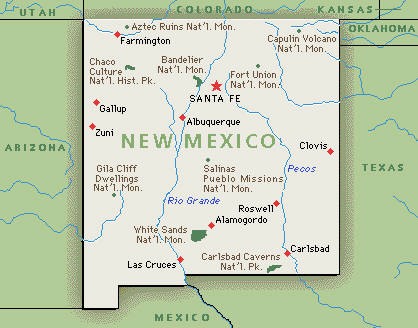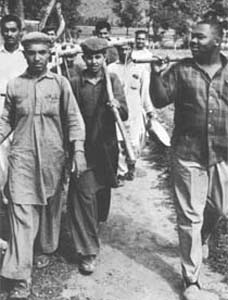
At the end of a dirt road, in the shadow of a small mountain sits a gray trailer. It is the home of RPCV Einar Kvaran. To understand the most audacious experiment of the postboom Internet, this is a good place to begin.
The Book Stops Here
Jimmy Wales wanted to build a free encyclopedia on the Internet. So he raised an army of amateurs and created the self-organizing, self-repairing, hyperaddictive library of the future called Wikipedia.
By Daniel H. PinkPage 1 of 4 next »
Dixon, New Mexico, is a rural town with a few hundred residents and no traffic lights. At the end of a dirt road, in the shadow of a small mountain sits a gray trailer. It is the home of Einar Kvaran. To understand the most audacious experiment of the postboom Internet, this is a good place to begin.
[Excerpt]
Kvaran is a tall and hale 56-year-old with a ruddy face, blue eyes, and blond hair that's turning white. He calls himself an "art historian without portfolio" but has no formal credentials in his area of proclaimed expertise. He's never published a scholarly article or taught a college course. Over three decades, he's been a Peace Corps volunteer, an autoworker, a union steward, a homeschooling mentor, and the drummer in a Michigan band called Kodai Road. Right now, he's unemployed. Which isn't to say he doesn't work. For about six hours each day, Kvaran reads and writes about American sculpture and public art and publishes his articles for an audience of millions around the world.
Hundreds of books on sculptors, regional architecture, and art history are stacked floor to ceiling inside his trailer - along with 68 thick albums containing 20 years of photos he's taken on the American road. The outlet for his knowledge is at the other end of his dialup Internet connection: the daring but controversial Web site known as Wikipedia.
Four years ago, a wealthy options trader named Jimmy Wales set out to build a massive online encyclopedia ambitious in purpose and unique in design. This encyclopedia would be freely available to anyone. And it would be created not by paid experts and editors, but by whoever wanted to contribute. With software called Wiki - which allows anybody with Web access to go to a site and edit, delete, or add to what's there - Wales and his volunteer crew would construct a repository of knowledge to rival the ancient library of Alexandria.
In 2001, the idea seemed preposterous. In 2005, the nonprofit venture is the largest encyclopedia on the planet. Wikipedia offers 500,000 articles in English - compared with Britannica's 80,000 and Encarta's 4,500 - fashioned by more than 16,000 contributors. Tack on the editions in 75 other languages, including Esperanto and Kurdish, and the total Wikipedia article count tops 1.3 million.
Wikipedia's explosive growth is due to the contributions of Kvaran and others like him. Self-taught and self-motivated, Kvaran wrote his first article last summer - a short piece on American sculptor Corrado Parducci. Since then, Kvaran has written or contributed to two dozen other entries on American art, using his library and photographs as sources. He's added words and images to 30 other topics, too - the Lincoln Memorial, baseball player Carl Yastrzemski, photographer Tina Modotti, and Iceland's first prime minister, Hannes Hafstein, who happens to be Kvaran's great-grandfather. "I think of myself as a teacher," Kvaran says over tea at his kitchen table.
To many guardians of the knowledge cathedral - librarians, lexicographers, academics - that's precisely the problem. Who died and made this guy professor? No pedigreed scholars scrutinize his work. No research assistants check his facts. Should we trust an encyclopedia that allows anyone with a pulse and a mousepad to opine about Jackson Pollock's place in postmodernism? What's more, the software that made Wikipedia so easy to build also makes it easy to manipulate and deface. A former editor at the venerable Encyclopædia Britannica recently likened the site to a public rest room: You never know who used it last.
So the modest trailer at the end of a dirt road in this pinprick of a town holds some cosmic questions. Is Wikipedia a heartening effort in digital humanitarianism - or a not-so-smart mob unleashing misinformation on the masses? Are well-intentioned amateurs any replacement for professionals? And is charging nothing for knowledge too high a price?
Recovery may take 12 steps, but becoming a junkie requires only four. First comes chance - an unexpected encounter. Chance stirs curiosity. Curiosity leads to experimentation. And experimentation cascades into addiction.
For Danny Wool, chance arrived on a winter afternoon in 2002, after an argument about - of all things - Kryptonite. Googling the term from his Brooklyn home to settle the debate, he came upon the Wikipedia entry. He looked up a few more subjects and noticed that each one contained a mysterious hyperlink that said Edit. Curious but too nervous to do anything, he returned to Wikipedia a few more times. Then one night he corrected an error in an article about Jewish holidays. You can do that?! It was his first inhalation of Wiki crack. He became one of Wikipedia's earliest registered users and wrote his first article - on Muckleshoot, a Washington state Indian tribe. Since then, he has made more than 16,000 contributions.
Bryan Derksen wrote the original Kryptonite article that Wool discovered. While surfing from his home in Edmonton, Derksen also stumbled upon Wikipedia and quickly traveled the path to addiction. He read a few entries on Greek mythology and found them inadequate. The Edit link beckoned him like a street pusher. He clicked it and typed in a few changes. You can do that?! "I just got hooked," he tells me. He's now made more edits than all but three Wikipedians - some 40,000 additions and revisions.
Number one on the list of contributors is Derek Ramsey, who has automated his addiction. A software engineer in Pennsylvania, Ramsey wrote a Java program called rambot that automatically updates Wikipedia articles on cities and counties. So far, the man and machine combination has contributed more than 100,000 edits.
String enough of these addicts together, add a few thousand casual users, and pretty soon you have a new way to do an old thing. Humankind has long sought to tame the jungle of knowledge and display it in a zoo of friendly facts. But while the urge to create encyclopedias has endured, the production model has evolved. Wikipedia is the latest stage.
[More at Web Site]














